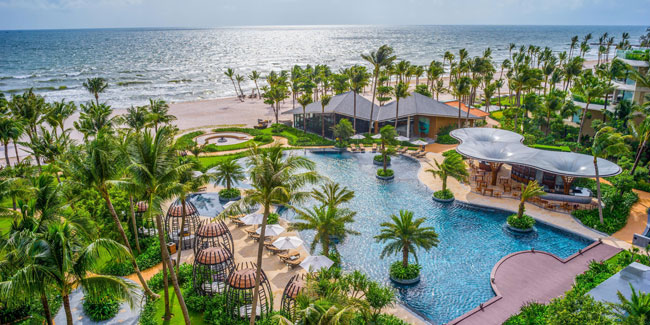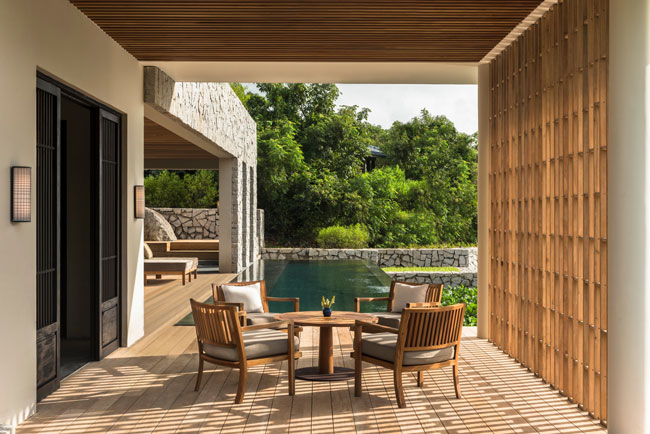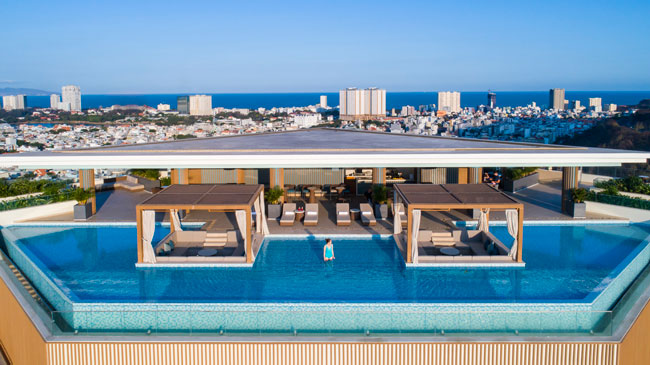“To fully exploit potentials of the markets for sustainable development, Vietnam’s developers need do thorough research on market trends to identify a business concept that can adapt to needs of new types of travellers”, Mr. Reno Mueller, Co-Founder & CEO of Rubix International JSC, told Vietnam Tourism Review.

Mr. Reno Mueller, Co-Founder & CEO of Rubix International JSC
How do you think about Vietnam’s leisure and tourism markets in recent years?
The past 5 years can be seen as three distinct periods.
First, there was the growth of Vietnam’s tourism market, both domestically and internationally peaking in 2019, with Vietnam recording over 18 million international tourists and ranking fourth place in terms of international arrivals amongst ASEAN nations.
Second, in early 2020 and for around 18 months came a period of almost complete decline, which was chiefly triggered by the Covid-19 health pandemic with all its travel restrictions, border closures, quarantine requirements that dramatically impacted Vietnam’s hospitality and tourism industry. We saw large numbers of operations be closed down during this period, many of which ultimately went out of business.
Third, in the past 18 months starting in early-2022, we witness a period that can be called a reset of the hospitality and tourism sector, taking place distinctly different for the domestic market where travel activities are steadily recovering to near pre-pandemic levels, and where increased spending for higher-end resorts from travellers that can afford vacationing becomes normal again as they make up on lost vacations. We also see longer stays at a specific destination since people are still weary of hopping between destinations and want to make the most of their holidays.
In contrasts, travel activities for the international leisure and business market are only just beginning to bounce back. Here Vietnam can build on its high pre-pandemic popularity amongst Asian destinations by promoting the country to selected source markets where it enjoys high standing, to further boost inbound tourism.
One of the biggest outcomes during this reset period is increased flexibility granted to travellers by airlines, tour operators, and hospitality companies. As travellers become accustomed to it, all participants should continue offering flexible deals and payment terms to further stimulate demand well beyond this year.

InterContinental Phu Quoc Long Beach Resort
What do you think about the position of the tourism and leisure industries for Vietnam?
Vietnam's tourism industry plays a significant importance for the country on various interrelated levels and can be seen as a value chain throughout the different stages of individual hospitality or tourism projects, all of which combined make up the tourism industry.
On a domestic level, overall tourism contributes currently around 11% towards Vietnams' GDP with a potential to grow to up to 18% or even beyond. At the start of a new hospitality or tourism development, tourism greatly boosts the various industry sectors of construction, domestic materials, furniture, appliances, and various other sectors.
During the operating stages, the industry provides significant employment opportunities throughout the country, which then becomes a driver of socio-economic development, especially in rural areas. Ongoing tourism operations also foster supporting industries like agriculture, transportation, tour operators, education, and health care and significantly contribute to sustainable environmental growth of the country.
Yet the tourism industry's importance does not only stem from economic facets, but also perceptual aspects since it is greatly responsible for establishing a positive image of Vietnam as a whole. And with this, it acts as a kind of catalyst and supporting actor to attract foreign investors not only into the hospitality and tourism sectors but also into related industries.
Whilst most of the points are well understood by the different participants in the tourism industry, such understanding is often too fragmented and disconnected on the policy level.
Here, a coherent and integrated approach that incorporates the various administrative functions like immigration, transportation, education, culture, tourism, hospitality, construction and related, is often still inconsistent, sporadic, or lacks long-term continuity.
However, great progress has been made and a solid foundation on different policy frameworks exists and further development and improvement of these frameworks will proof vital for the continuing strong development of Vietnam's tourism industry.

Amanoi Resort Ninh Thuan
What trends do you expect for Vietnam’s tourism and leisure markets in 2023?
Overall, we see new developments in three areas. First, there is a changing domestic market with stronger interest in health and eco-tourism and a growth in individual tourism spurred by improved road infrastructure across the country, both of these trends are interlinked. Individual travel activities as opposed to tour groups, are increasingly undertaken by younger families that are economically more independent, they tend to opt for longer stays and diversity of destinations.
In addition, independent travel by car also allows for more flexible timing rather than following established travel seasons and itineraries. This changing attitude in turn links to health and eco-tourism as lingering health concerns stemming from the pandemic experience leads many tourists to stay away from crowded places and to reassess their own lifestyle choices. They also care increasingly more about environmental issues and strongly support eco-tourism, partially due to globally recognised climate change concerns and partially resulting from personal and collective experiences during the lockdown periods such as lack of green spaces, restricted mobility, and other impediments to healthy living.
Second, there are trends leaning towards new source markets. Whilst China will continue to play a vital role for inbound tourism, we believe that India is increasingly becoming a new source market with vast potential. Although it is not a completely new market, the profile of Indian tourists is starkly different now as opposed to pre-pandemic with a strong shift away from tour groups towards individual travellers and their families with higher spending on accommodation, eating out, and entertainment. This sits in contrast to Chinese tourists that will continue to travel in Tour groups based on their largely centralized travel arrangements and that very often follow an established spending pattern.
Other increasingly important source markets are Thailand, Cambodia, and Laos as tourist from these regional neighbours can enjoy improved road connectivity, especially in the central region where we see a strong uptake in tour groups visiting destinations like Phong Nha Ke Bang and others in Quang Binh and neighbouring provinces. In combination with new source markets and in the temporary absence of Chinese travellers, there are great efforts to rekindle other regional markets like Japan, Korea, and Singapore as they are key for the longer-term quality development of the Vietnamese tourism sector.
Third, there are signs of young and growing product markets. Whilst the MICE business will undoubtedly continue to play a vital role and grow further, we believe that this will only happen in already established destinations in Vietnam, specifically Danang, whilst other lesser developed destinations can have greater success chances by focusing on their location specific advantages and customize tourism offerings accordingly.
Another relatively new product market is the International Wedding business that offers one-stop packages including travel, accommodation, wedding ceremony and celebration, and related entertainment and sightseeing activities to specific overseas markets. This type of tourism business is highly specialised and has amble room for growth in selected destinations with developed tourism infrastructure in Vietnam, notably Phu Quoc, Nha Trang, and Danang. It is noticeable that the Wedding business so far is also closely linked to the new source market India and can expect a strong development of both in the coming years.

Fusion Suites Vung Tau
Can you advise some plans that tourism and leisure companies in Vietnam should follow to grow further in the “new normal”?
Essentially, there is a great many things that developers and operators of hospitality and tourism venues have already done right so far by account of the impressive tourism revenues prior 2019.
Thus, it is not so much something new that should be done, but more to re-visit specific success strategies and follow them once more. This is especially true for all aspects of quality products, high service standards, and strong dedication towards the tourism sector, all of which relate to a well-trained and motivated workforce.
Hence, businesses in the tourism industry should continue providing quality training for their employees, but also enable an improved work-life balance as this is increasingly becoming an important criterion to attract and retain motivated staff.
Furthermore, some adjustments and adaptations of existing hospitality and tourism operations and services are required on account of the new and growing source markets and changing domestic travel behaviours.
For example, vastly different service requirements for Chinese tour groups as opposed to Indian family tourists should be offered by hospitality operators and tourism businesses to benefit from the great opportunities to boost tourism revenues that both provide.
| Reno Mueller is Co-Founder & CEO of Rubix International JSC, a boutique professional services provider with clear strategic orientation on three interlinked areas of Hospitality Services, Real Estate Solutions and Corporate Services. Mr. Reno worked for independent hotels and major international groups like IHG, Marriot, Kempinski, and Four Seasons for over 10 years and has contributing his efforts for the past 16 years in Commercial Real Estate in Cambodia, Myanmar, and Vietnam. |
Reposted from VTR